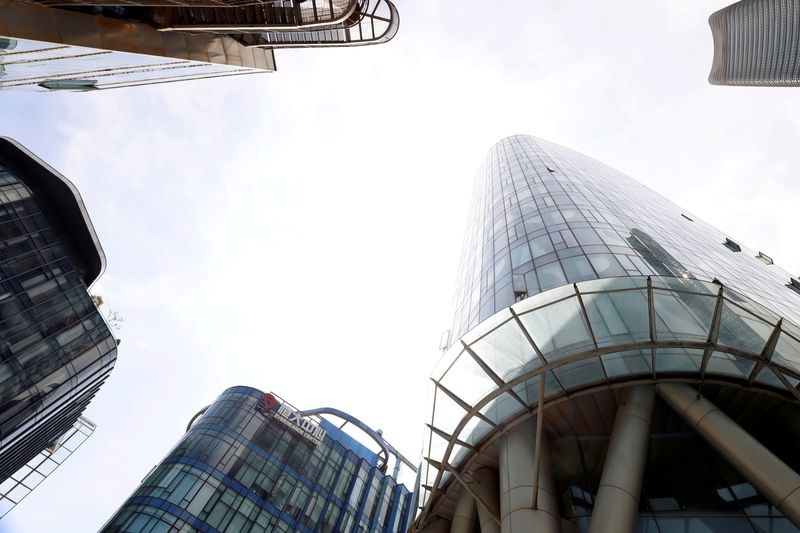Analysis-China Evergrande subsidiary dealings raises prospects for offshore creditors
2024.08.21 23:00
By Xie Yu and Clare Jim
HONG KONG (Reuters) – Offshore creditors of China Evergrande (HK:) might be able to increase their chance of recovering funds if they can prove the property developer is due money from onshore subsidiaries, to which they would therefore be entitled, experts said.
Those creditors became de facto shareholders of Evergrande’s onshore assets due to a January liquidation order in Hong Kong, giving them another avenue to recoup money from a firm whose offshore liabilities alone reached as much as $23 billion.
Shareholders have the lowest seniority when recovering debt. However, in the case of two electric vehicle (EV) units and a property unit, they could be considered creditors which have higher seniority should the court-ordered reorganisation of the former and liquidation of the other reveal those subsidiaries have outstanding loans extended by China Evergrande.
“Offshore creditors who can prove Evergrande lent money to these onshore restructured businesses have a legal right to claim back money, based on experience,” said Glen Ho, Deloitte China’s national turnaround and restructuring leader.
Ho cited a case involving his team in which offshore creditors of China Huishan Dairy received payouts through the restructuring of onshore subsidiaries who had borrowed from the parent.
Creditors of the Evergrande units – including Evergrande itself, if there are outstanding loans – must report details of money owed before creditor meetings on Oct. 22 for Evergrande New Energy Vehicle (Guangdong) and Evergrande Smart Automotive (Guangdong), and Nov. 14 for Guangzhou Kailong Real Estate.
Evergrande liquidators – appointed by the Hong Kong court to represent offshore creditors – declined to comment. Its flagship onshore operation Hengda Real Estate declined to comment.
Calls to the Guangzhou Intermediary Court, which is overseeing the subsidiaries’ cases, went unanswered.
The possibility of Evergrande’s offshore creditors recouping funds through subsidiaries adds another chapter to the downfall of what was once China’s biggest property conglomerate.
It also raises the possibility of offshore creditors filing proof of debt between Evergrande and other subsidiaries, and pursuing funds by pushing for those units’ restructuring, experts said. Even so, recovery will be challenging, they said.
“The process will be lengthy and it will be hard to navigate the mainland restructuring process,” Ho said.
The Hong Kong ruling designating offshore shareholders – through the liquidators – as shareholders of onshore assets is not automatically recognised in mainland China.
Moreover, being designated de facto shareholders of the subsidiaries, offshore creditors rank below those onshore so they will struggle to recover anything at all, said a restructuring expert in Hong Kong, declining to be identified as they were not authorised to speak with media.
With legal cases both onshore and off, creditor interests could also clash while they pursue the same assets.
For instance, the EV units’ reorganisation is likely to disrupt a deal Evergrande liquidators announced in May to sell the property developer’s stake in Hong Kong-listed China Evergrande New Energy Vehicle, analysts said.

Still, it is important that offshore investors are involved in government-led bankruptcy processes, and to ensure those process are transparent, said Qiao Shitong, a professor specialising in property law at Duke University’s Law School.
“Letting the court handle such complicated cases, and making sure procedures are followed in the spirit of justice, is more important than who gets what,” he said.








